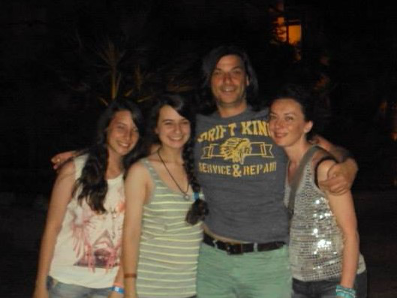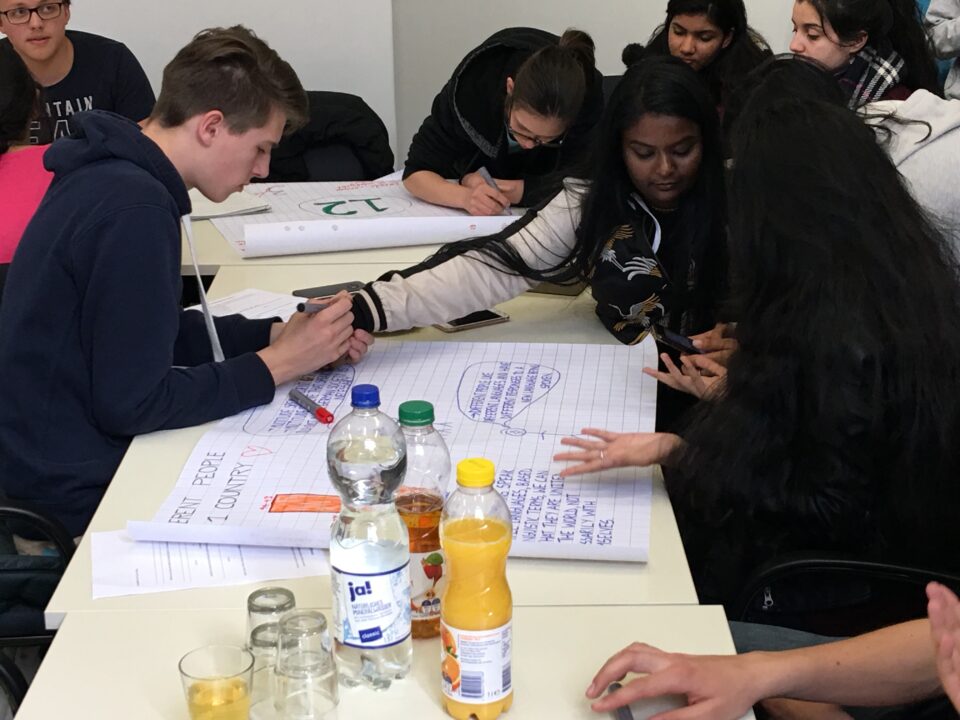One family’s soft skills

The Importance of Articulated Roles
June 18, 2020
CPD with Impact: Appraisals
July 30, 2020Useful lessons with my stepdaughters
A become a stepmom at the age of 43. This was a totally new experience, one filled with joy, fear and a billion questions: what if they hate me? what if I hate them? what if I’m not what they expect? Furthermore, what exactly do they expect?
I met my stepdaughters for the first time in Cairo, shortly after their father had proposed to me. I was super anxious and so very excited to meet them and finally, they arrived. Nour was 14 and Ganna was 11 (our millennium!). We had dinner and the following day we left Cairo to go on a beach holiday in Makadi Bay. It was a first for so many things. Their first beach holiday, my first time with 2 kids, my first time in Egyp. The list was long.
Since then we became ONE FAMILY, this is our nickname. Our family is full of differences: 4 nationalities, 3 languages, 2 religions, 1 large and diverse family. We learnt very quickly that our differences attracted a lot of attention whenever we travelled. People will often approach us and ask “Where are you from?” and most of the time they leave confused because our family doesn’t fit the stereotype.
Over the years, the kids went through some challenges as growing up can be very difficult. Fortunately, we went through these difficulties with an open heart. And we navigated through them using some very needed soft skills. What did we learn on the way?
A warm welcome
The kids welcomed me with a beautiful smile and open arms. They adapted their behaviour to help me fit in while in Egypt. We reviewed things we took for granted because our family was different from what we knew and we needed to create new rules to fit our needs. The ability to learn from experiences and change accordingly is key in today’s world and complex family dynamics = adaptability
This is how we’ve always done it
The kids made a leap in challenging theirs believes as they were facing a different role model (me). They didn’t judge me. They adapted to a new family shape and together we looked at things from different angles to include and understand our different perspectives = critical thinking
Understanding feelings
Empathy was there in abundance from the beginning however, the little one went through a very difficult time when Ash and I got married. Showing her that I saw her for who she was and validating her fears allowed us to move forwards and consolidate our relationship. She showed strength and understood the importance of empathy, something that the kids have naturally, it guides them so well in their interpersonal interactions = empathy
Good manners

Numana, Italy 2018
Old fashion good manners proved also to be a bonus in our family. It is easy to cut conversations short because we think we know everything. Normally it is over dinner that we discuss more serious topics and this allows the girls to 1. present their point of view 2. acknowledge the point of view of others 3. review their believes 4. adapt their behaviour staying true to themselves = integrity and consistency
End of holiday blues
The last 3 or 4 days of our holidays used to be filled with sadness as the kids started thinking about not seeing their dad for a few months. This was heart-breaking for all and we had to find a solution to turn so much unhappiness into a special moment. So, having discussed the reasons why they fell into this pattern and explored our feelings we now celebrate our time together and look back at the funniest moment, the best food, etc and this injects happiness into the last days of our holiday. An important step for the kids was to understand that we build our beautiful memories in the present. Being present allows us to breath, relax and enjoy each other = optimism
Baby steps
We live in a competitive world in which young people are under the constant scrutiny of social media; this persistent pressure can break some of them. The idea that only perfection will do, always and at any cost is a hard rule to follow. Teaching the kids that yes, they are free to set their own standards, that learning happens in stages. And that sometimes failure is a valuable lesson not the end of the world was stage one. With little guidance the kids became stronger in themselves and now remind us when they see us struggling that “baby steps” are ok = proactivity
Bouncing back
Teaching the kids the importance of mistakes, coupled with planning and reason, helped them to be stronger when facing uncertainty. The ability to bounce back is particularly difficult for high achievers as they experience little failure. Unexpected poor results at school on your final year at high school is an example or moving to London for your first experience away from home are two examples of what our kids went through but learning about learning was a valuable lesson, one which allowed the kids to support each other and ask for support when they needed it. The support we offer to each other allows us as individuals to take risks because we know that we have a safety net: a strong family behind us = resilience
Soft skills are a popular topic and when I tried to explain what they are to my mother she looked at me as if I had just discovered that you need to breath to stay alive. These skills are nothing new and yet they are sold to us as if they are the greatest novelty ever. Maybe some of these skills left the professional context as they are not measurable (hard skills are) and because so many managers say things like “It’s nothing personal” or “It’s just business”.
Soft skills are personality traits and behaviours that allow us to interact with others successfully. The number of soft skills varies depending on authors, for example in “Leadership” by Diane Lindsey Reeves and Connie Hansen they reduced soft skills to 4: savvy, integrity, inclusivity, influence; in Emma Sue Prince “7 skills for the future” they are: adaptability, critical thinking, empathy, integrity, optimism, being proactive, resilience.
Conclusion
In conclusion, the number of soft skills is not important. What is important is that interacting with others is a skill that can be improved and refined. The quality of the interaction an individual has affects their mental wellbeing and the perception an individual has of him/herself. So, what I learn from my stepdaughters is to be kind, respectful and try to put yourself in other people’s shoes. If you behave like this at home, at work and when you socialise, I think you will soon feel better about yourself and others.
Written by Lara Panzini
About the author
Lara Panzini started her carrier in education as a qualified primary school teacher. She holds a BSc (First Class Honours) Professional Studies from London University – Academic research methods applied to the workplace. She specialised in language teaching by obtaining a TEFL certificate and a certificate in Teaching Italian as a Foreign Language, RSA Diploma in Teaching Foreign Language to Adults (DTFLA), RSA Assessor Award: Training and Development (NCVQ: Level 3) and is a Business Cultural Trainer.
Related posts
Still have questions or need help? Give us a call at
For Dubai and Middle East Office Contact



